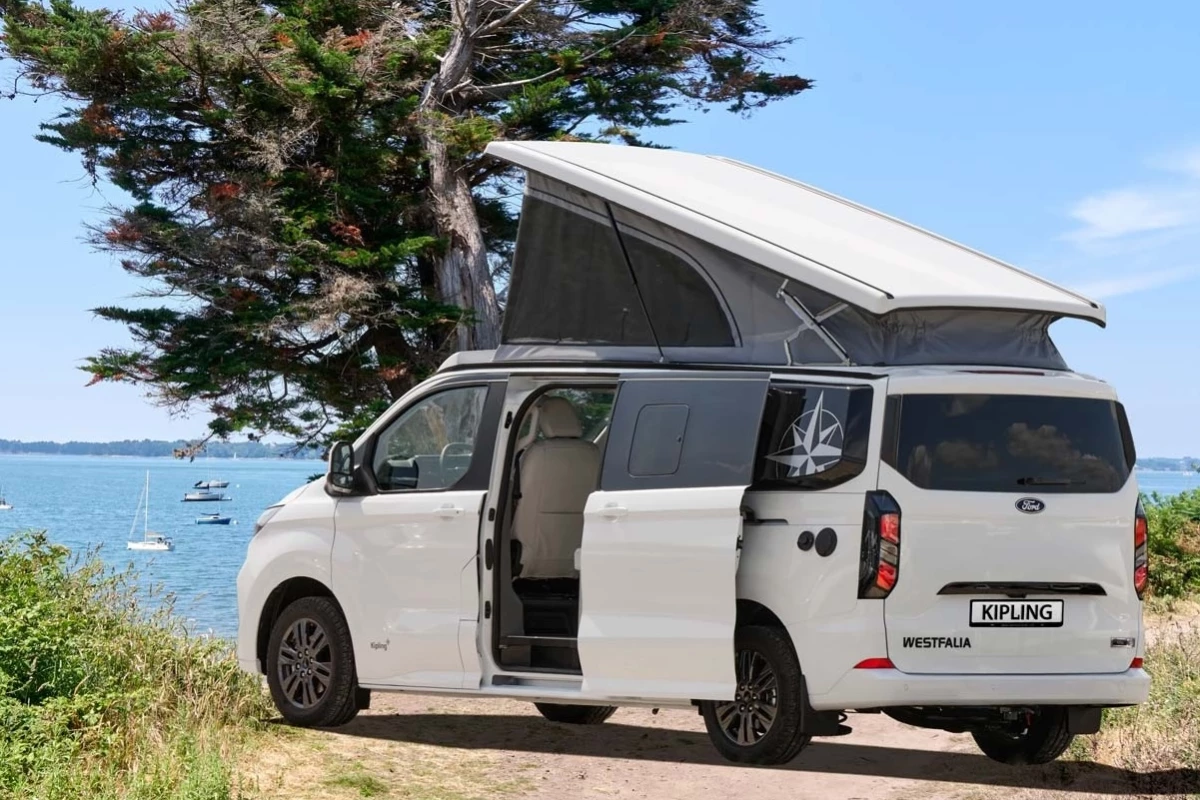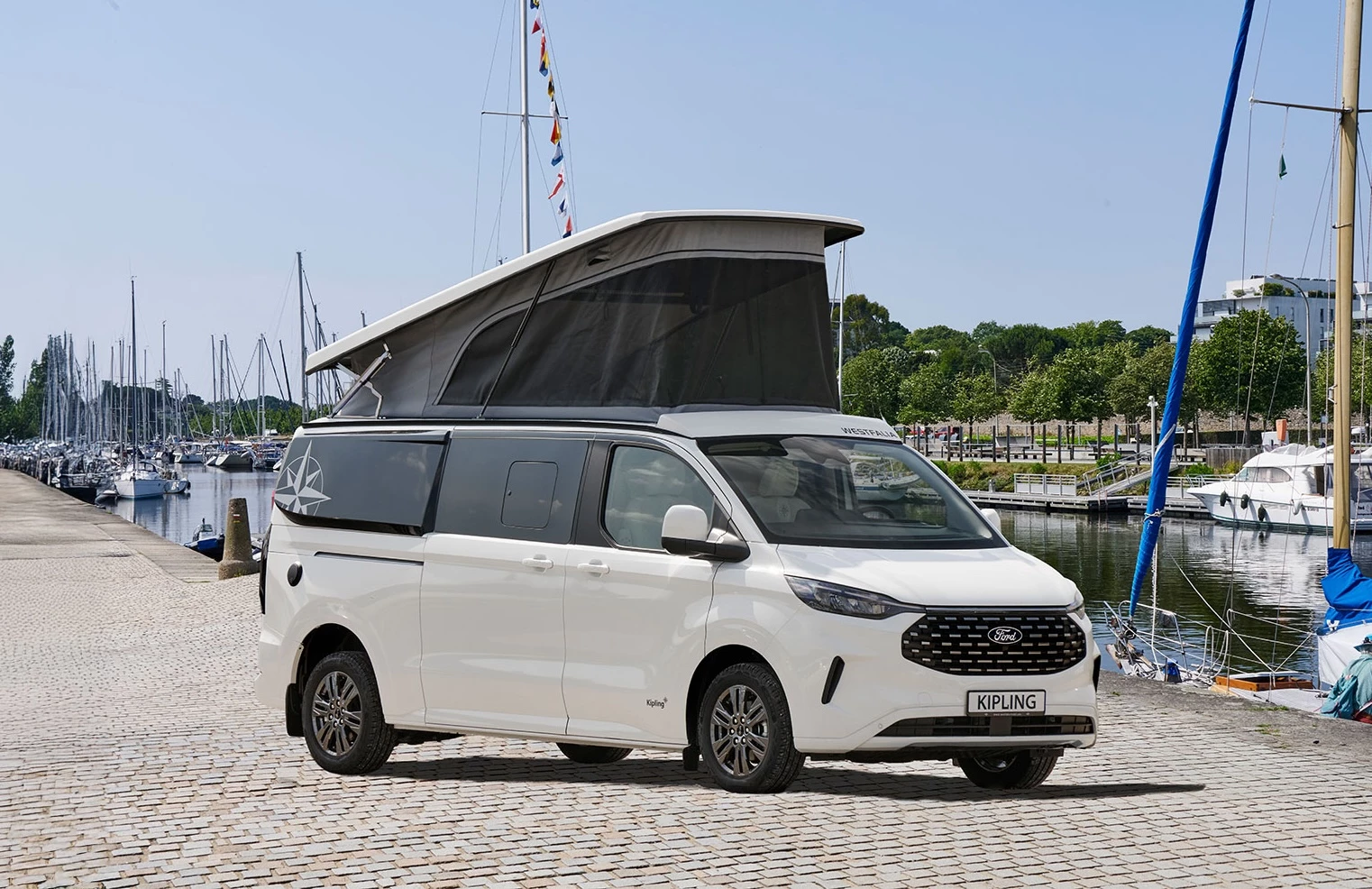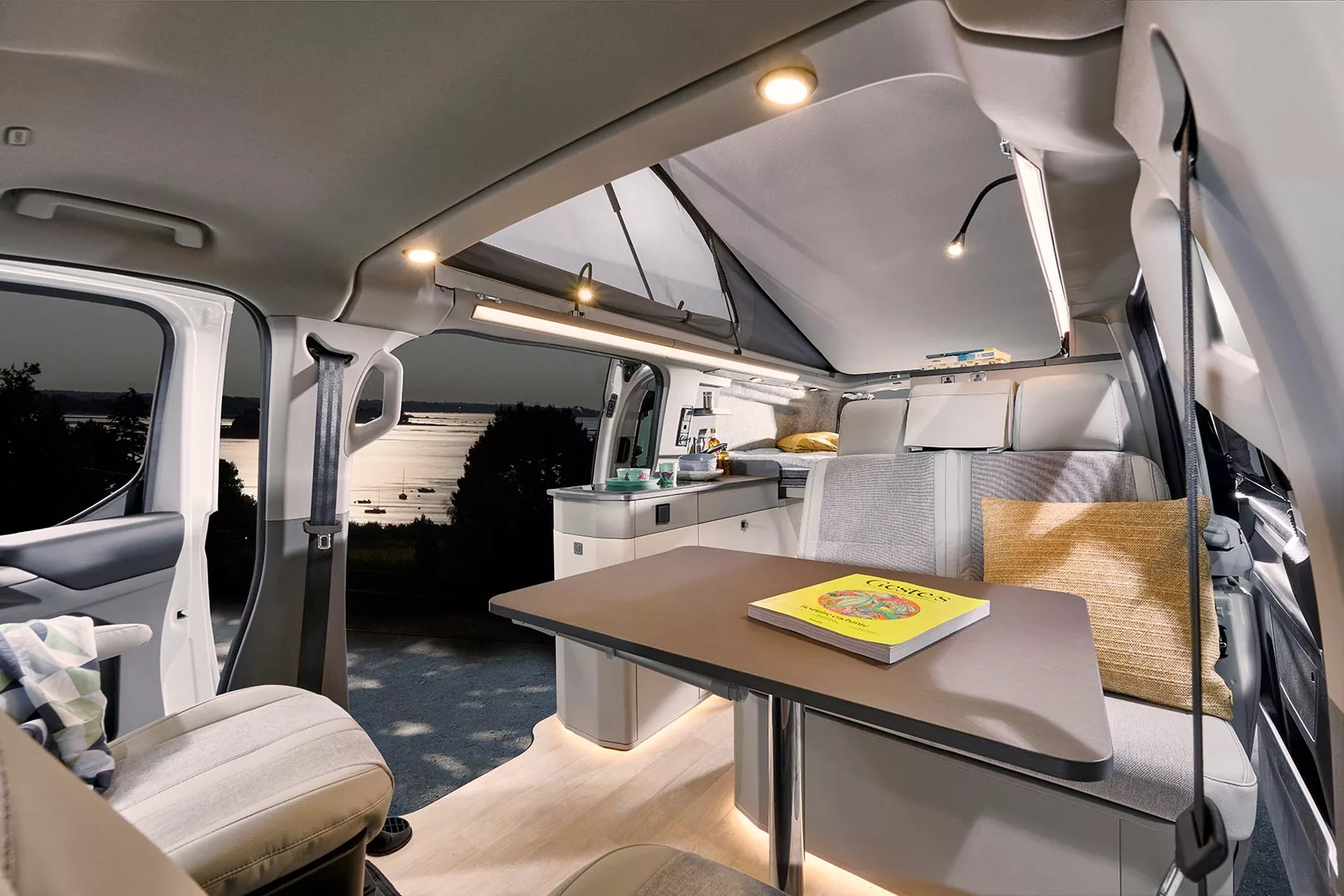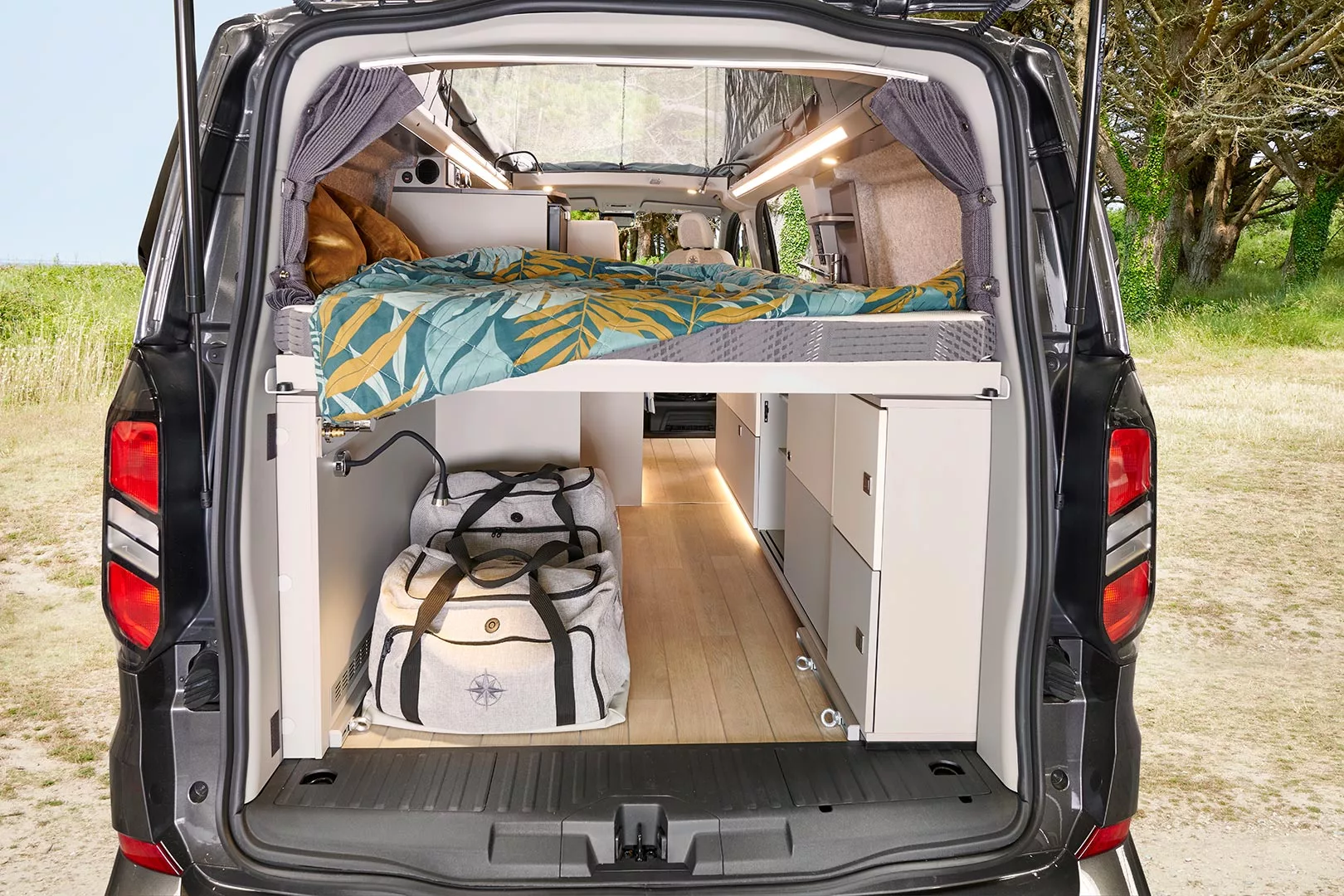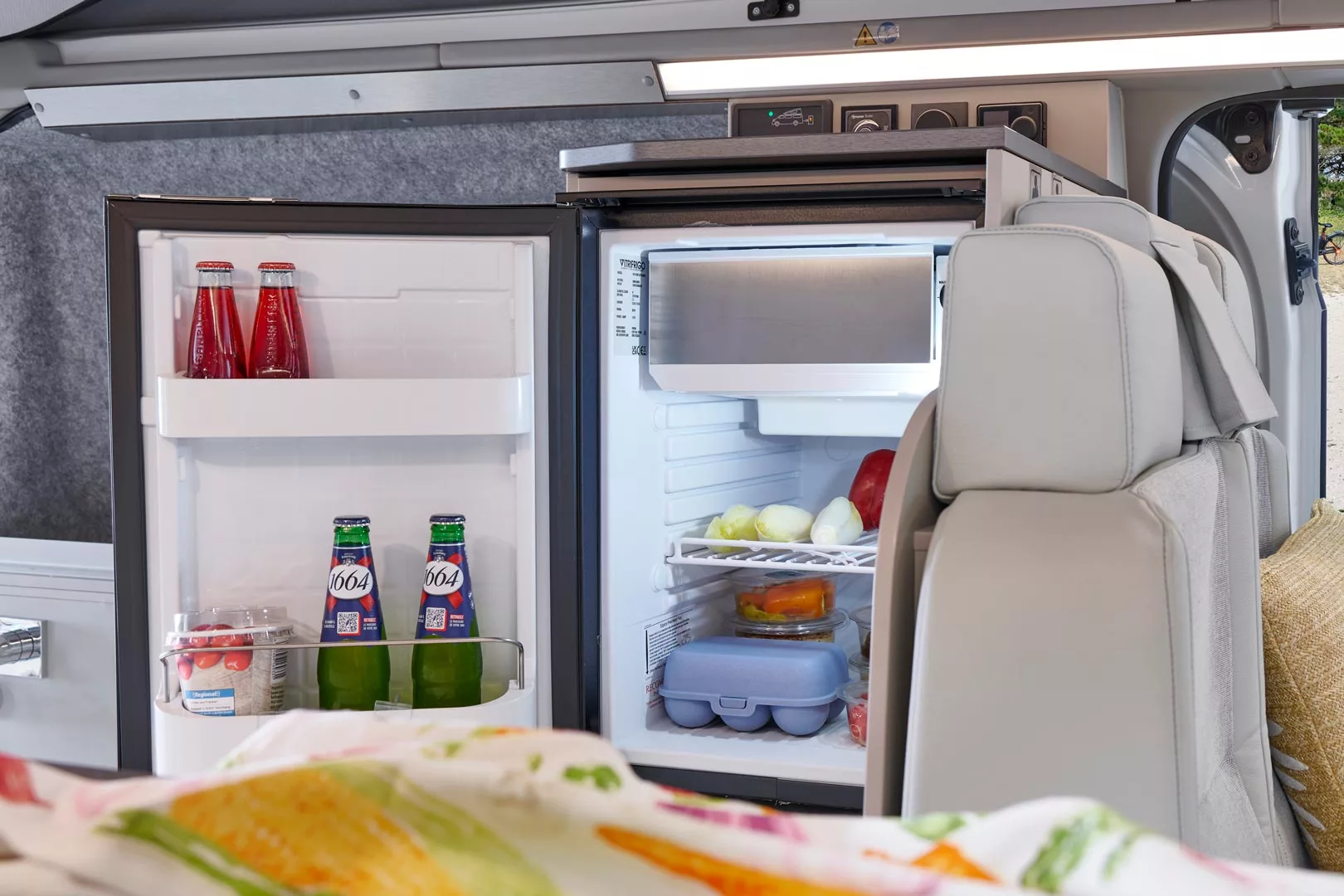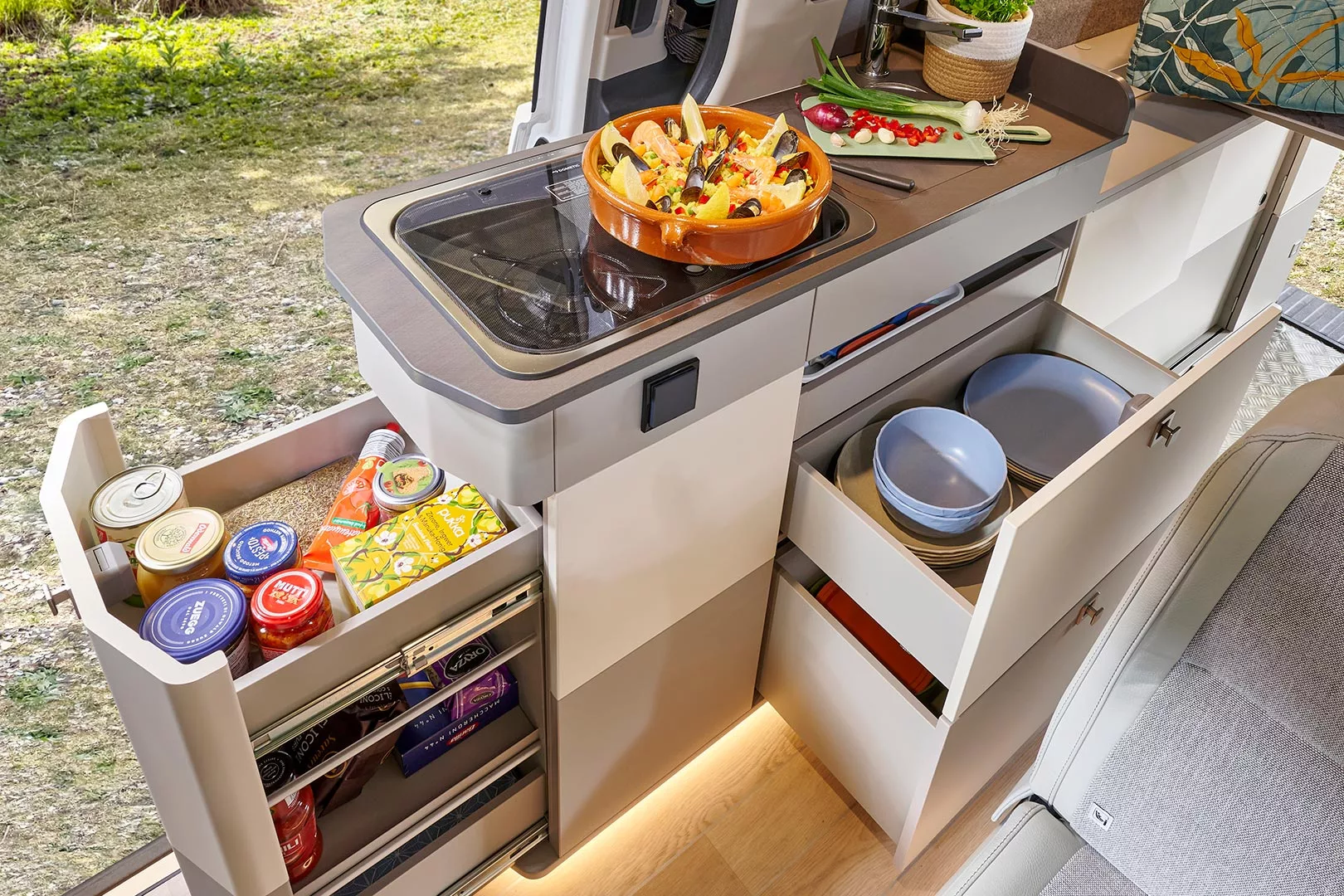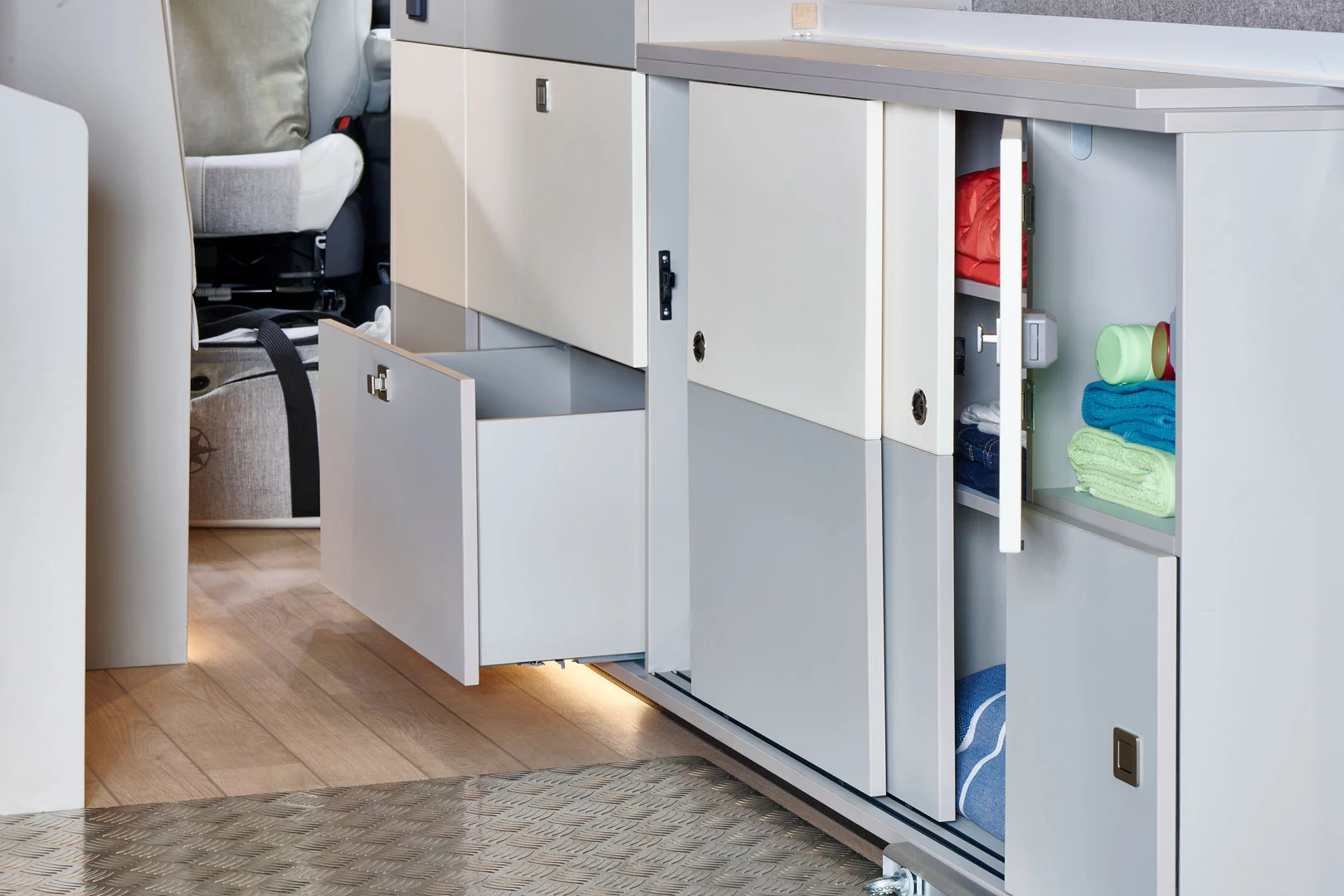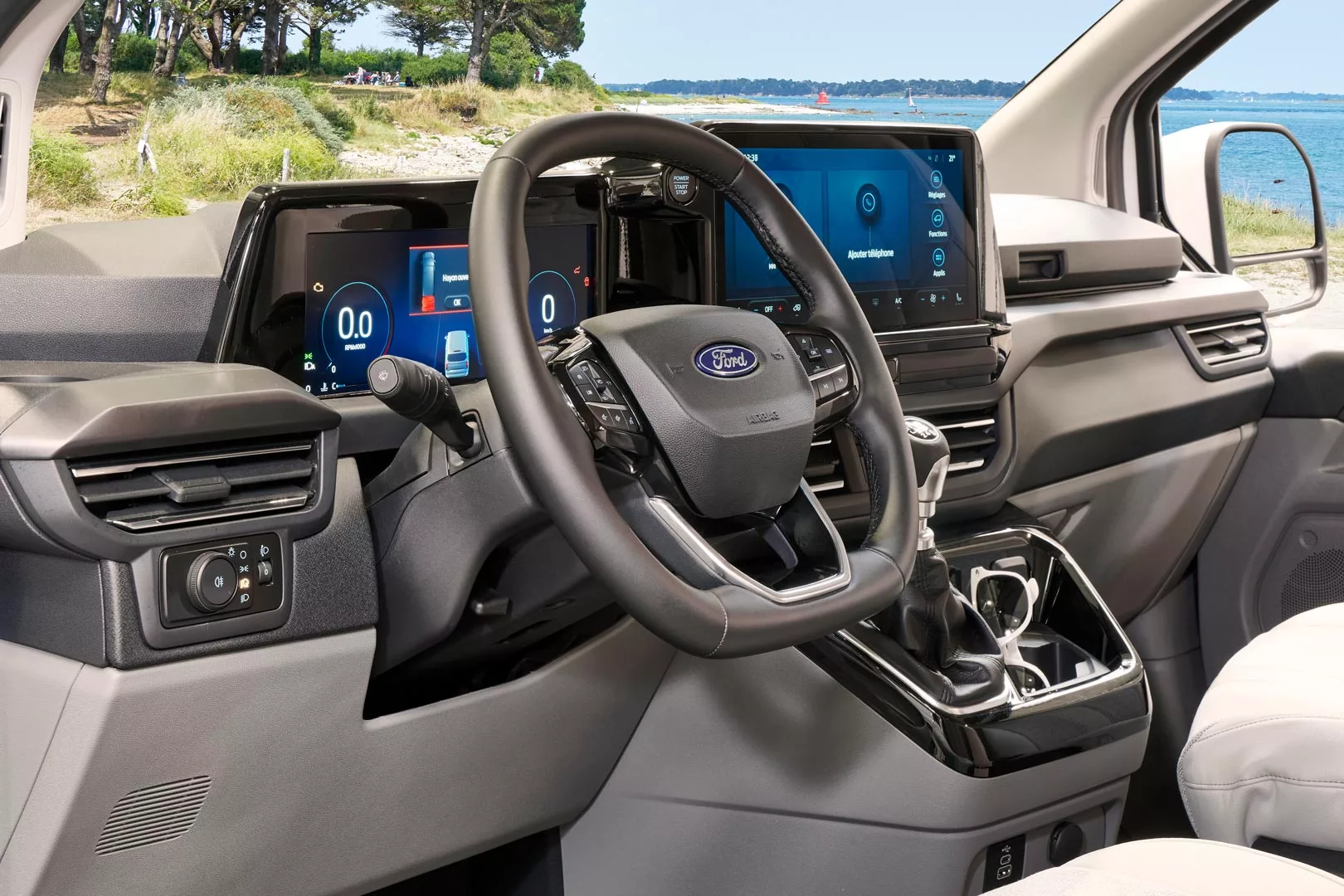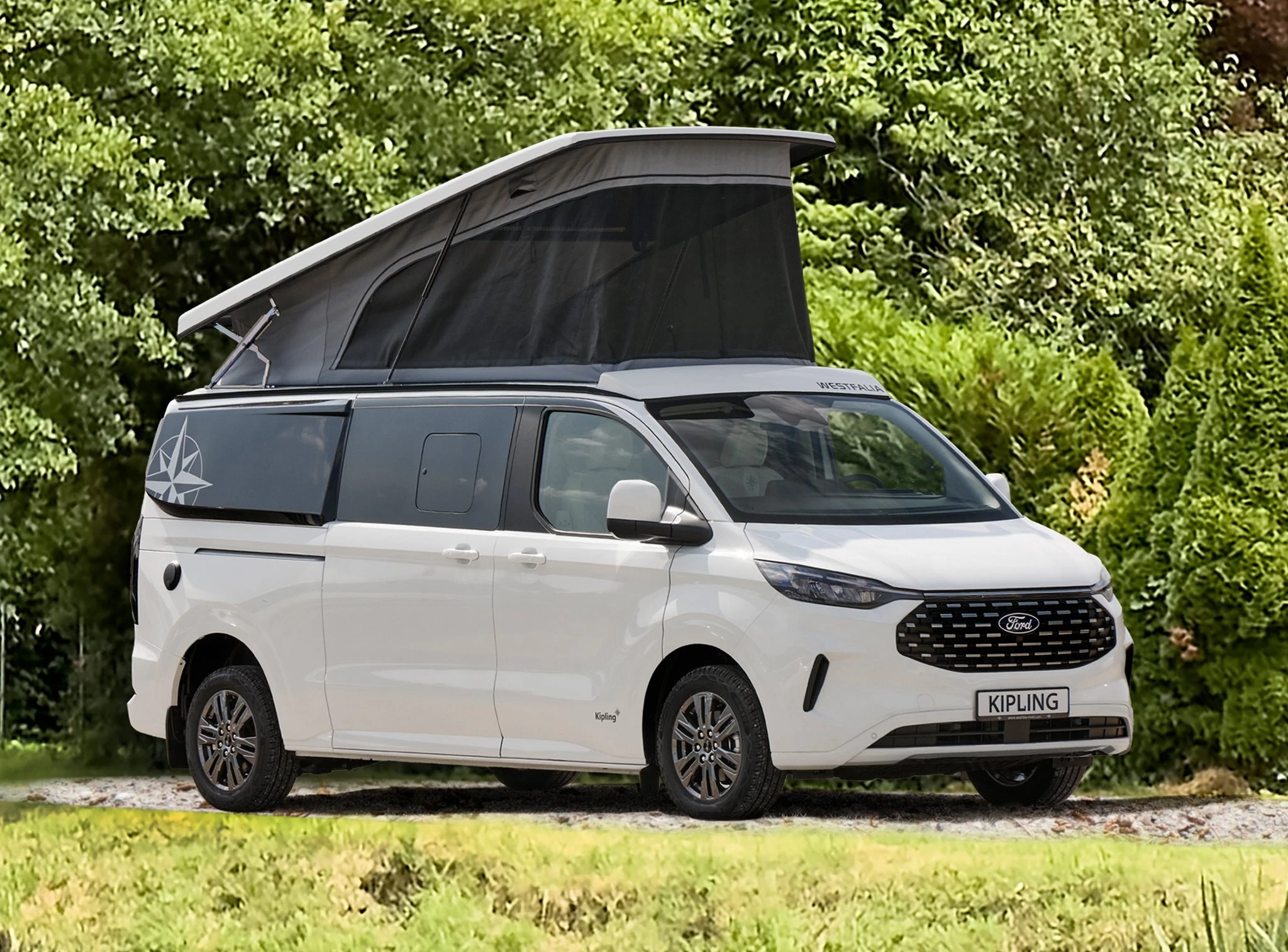With the ever-expanding new Nugget camper van series, Ford and Westfalia have worked in some new buzzwords – "winterproof" seems to be a particularly effective one – but have carried over a design formula very closely related to the last generation. That's left Westfalia to look outward from the partnership to continue evolving Ford van life in new directions. Its all-new Kipling features a layout very similar to a full-size van camper, only shrunken and tucked into Ford's midsize Transit Custom. "Kipling" is a solid name without any hint of trademark infringement, but we think of this one as the "Twisted Nugget."
At first glance, the Westfalia Kipling appears to have a very standard, nondescript floor plan, much the same as dozens of other camper vans across Europe and beyond. But that familiar layout is almost always reserved for full-size van models like the Ford Transit, Fiat Ducato and Mercedes Sprinter, not midsize vans like the Ford Transit Custom.
Westfalia, however, has never limited itself to a standard formula when it comes to midsize vans, as evidenced by the Nugget's unique three-room layout, or via the last-generation Club Joker – a California-like camper van with the bathroom Volkswagen has never added.
So Westfalia adapts the traditional rear bed/passenger-side kitchen/driver-side front dinette camper layout of full-size van fame to the midsize Transit Custom in a move we can't recall ever seeing before. It twists the bed 90 degrees in comparison to the traditional midsize camper van, makes it completely independent from the rear seating bench and front dining lounge, and gives it a folding, removable build so that users can still access a large cargo space during the ride to and from camp.
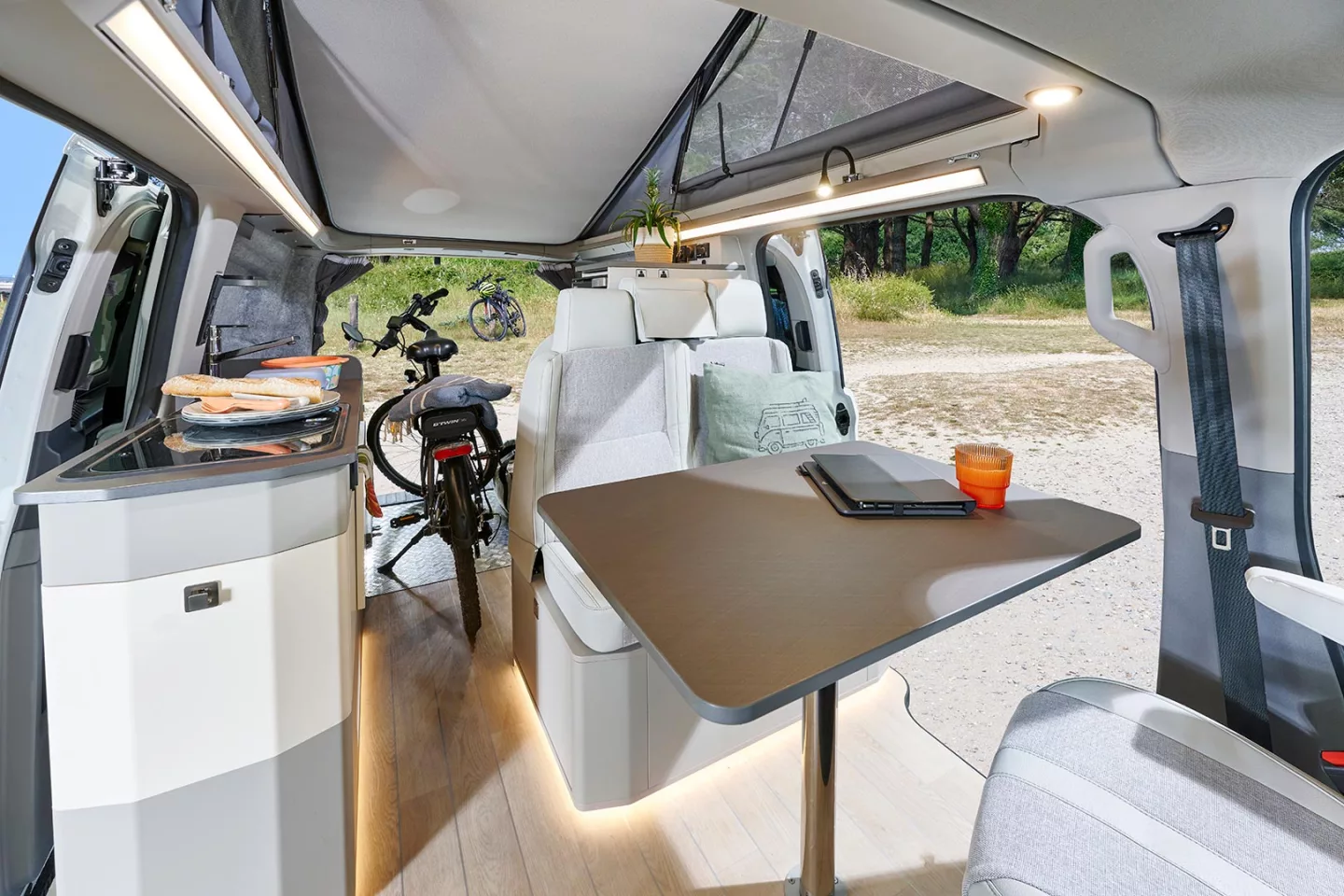
Interestingly, the reason the transverse rear bed layout is usually reserved exclusively for full-size vans has little to do with a difference in width as compared to midsize models. Many full-size van models also lack the necessary width for a transverse rear bed, tapering in toward the roof to cut width below what's necessary for a builder to install a transverse bed in the over-load floor space. That's a big reason the boxy Fiat Ducato, and Stellantis corporate cousins like the Citroën Jumper, remain highly popular camper conversion base vans in Europe – they're boxy and wide enough to fit transverse beds without any further modification.
When it comes to other full-size vans, camper shops like Westfalia engineer around their narrow load areas with side flares. Usually located on the window line, these flares increase width just enough to accommodate a transversely positioned bed sized to fit actual adult humans. That strategy is on full display in Westfalia designs like the VW Crafter Sven Hedin, with its power-pop foot pod, and last year's James Cook 600D addition with its long, dramatic side flare.
We suppose campers based on midsize vans don't generally employ flares because there's less to be gained from a transverse bed. These vans tend to lack the height and floor area for a full-time wet bathroom, anyway, so can accommodate a convertible longitudinal double bed without losing out on much.
Westfalia has identified a reason to add flares and swing the bed around to transverse in the Kipling, so it's installed left and right window line flares around the 51 x 74-in (130 x 188-cm) transverse double bed. That creates a T-shaped bunk configuration with the 76 x 50-in (192 x 128-cm) double bed in the pop-up roof, combining to offer total sleeping space for four people to complement the four belted drive seats.
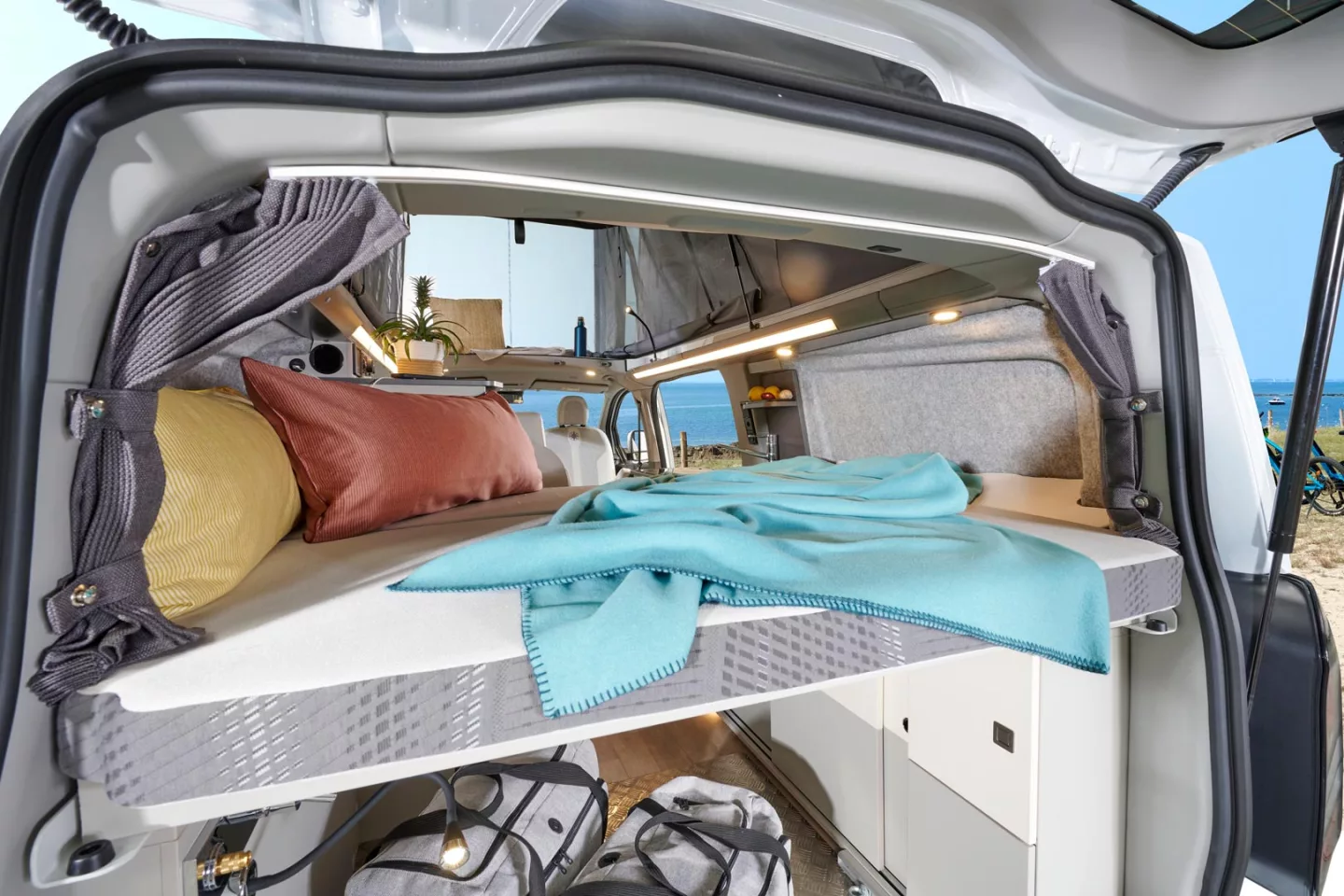
Of course, 74 inches is still shorter than many camper beds and won't work comfortably for taller individuals. In some of those cases, the parents could always use the longer bed in the pop-up roof and leave the shorter downstairs bed for the kids.
So why burn up the rulebook just to spin the bed sideways? The transverse rear bed layout offers some advantages over the longitudinal folding bench/bed far more common in midsize van campers. And those advantages would seem quite attractive to a large segment of the modern van life community.
While the Kipling's rear bed lacks the fuller length a longitudinal orientation might provide, it has more width than typical in this class because it's not squeezed between the kitchen block and opposite side wall. The Ford Nugget's convertible lower bed, for instance, is an inch (2.5 cm) longer but only 47 inches (120 cm) wide. Volkswagen California models with a driver-side kitchen, meanwhile, have 78 inches (198 cm) of bed length but only 42.5 in (108 cm) of width.
The Kipling's 51-in width is closer to a proper residential full-size bed and will give each sleeper a little more room to toss, turn and sleep comfortably.
Another major advantage comes from decoupling the bed from the dining bench and lounge. This allows both the bed and dining area to be used at the same time.
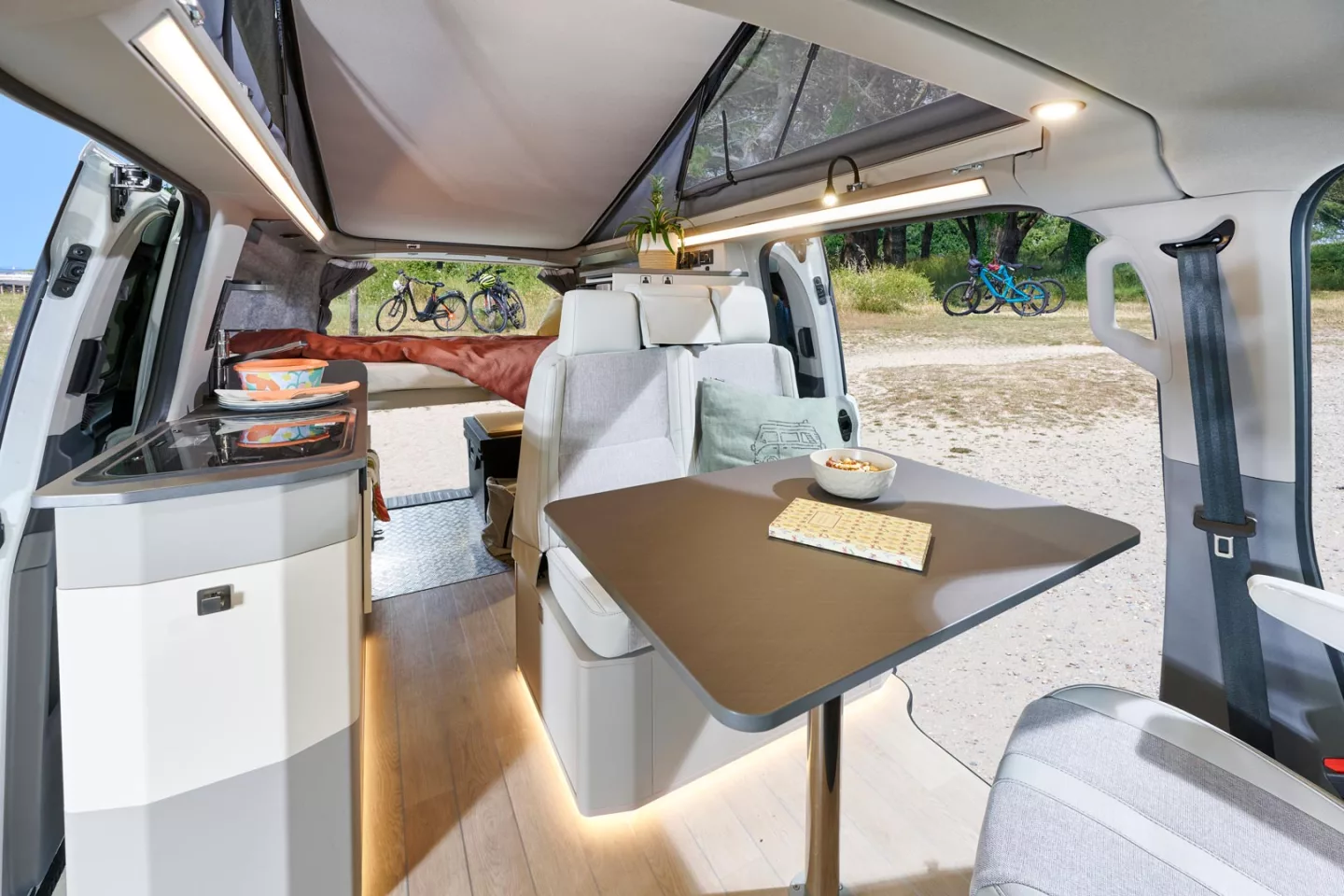
So an early riser can get right to preparing and eating breakfast while their partner sleeps in. And their two children sleeping in the pop-up roof can join around the table. The late-slumbering parent, meanwhile, can do remote work on their laptop at the table at night while the rest of the family sleeps comfortably. That's not possible when the bed is actually the flattened rear bench and stretches out into the space otherwise occupied by the dining table and kitchen floor.
The Kipling floor plan adds some flexibility as to how the camper can be used at any given time, similar to the way the Westfalia-built three-zone Ford Nugget maintains access to the kitchen and available rear bathroom (but not the dining area) when the lower bed is set up. The Kipling simply provides an option for those who prefer access to the kitchen and dining area without having to convert over the bed to daytime configuration.
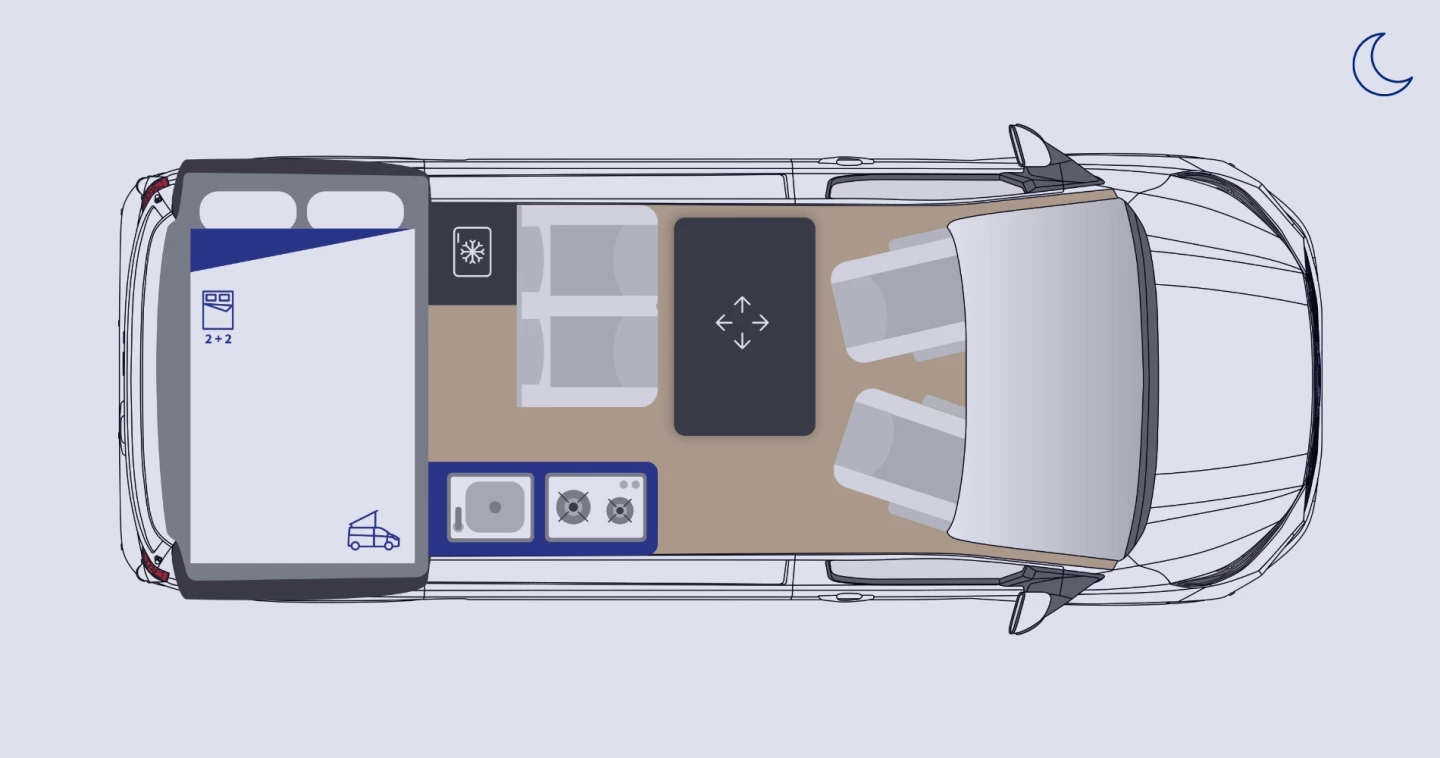
The Kipling also adds a flexible feature that full-size van campers with this layout generally lack: dual sliding rear doors. The pedestal table is mounted independently from the driver's sidewall, so users can enter and exit from either side of the van, or slide both doors open and enjoy fresh cross breezes. Mosquito nets are available optionally.
On the other hand, there is at least one glaring disadvantage in comparison to select longitudinal-sleeper midsize camper van designs. The Kipling is based on the longer 215-cm (545-cm) Transit Custom, which affords the option of a rear bathroom below the stand-up height of the forward-tilting pop-up roof, as seen in the Nugget lineup. But as currently configured, the Kipling only comes with a rear-tilting pop-top and an odd deconstructed bathroom with a slide-out toilet under the fridge just behind the dining bench, plus a hot/cold outdoor shower.
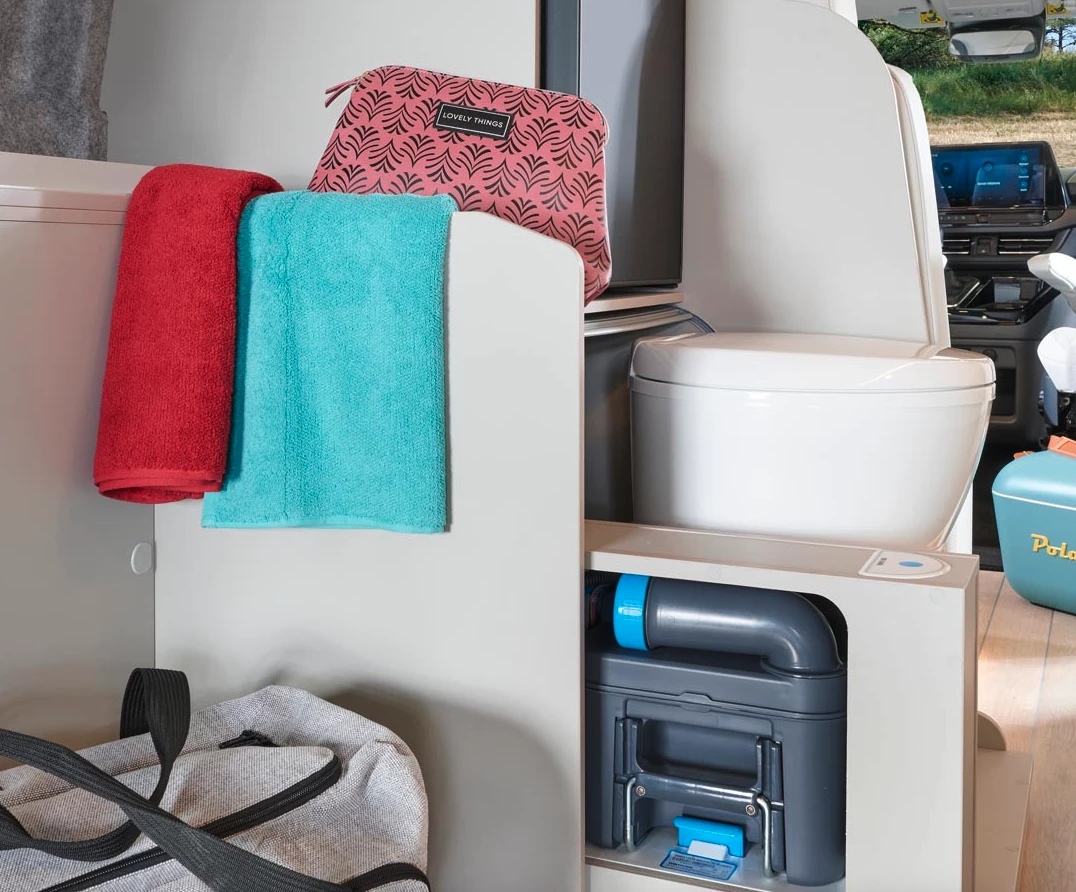
So Kipling buyers are essentially choosing more dining/workstation flexibility over a complete indoor bathroom setup. The rear bathrooms we've seen on Ford Transit Customs are hardly elegant, but we'd still prefer them over an under-fridge toilet slide. But there's no perfect floor plan for every buyer, so we'll see how this one does for Westfalia. Plus, there's a reason this layout is so popular in full-size van campers (though they usually have a dedicated wet bathroom), so maybe it will translate over to Ford's midsize van.
Beyond its unique full-meets-midsize floor plan, the Kipling includes a standard features set with a dual-burner stove and sink at the kitchen, a 51-L fridge across the aisle below a secondary worktop/shelf, a Webasto space heater, a Truma hot water heater, a 50/50-L combo of fresh and waste water capacity, LED lighting, and loads of storage space in the galley drawers and under-bed cabinets.
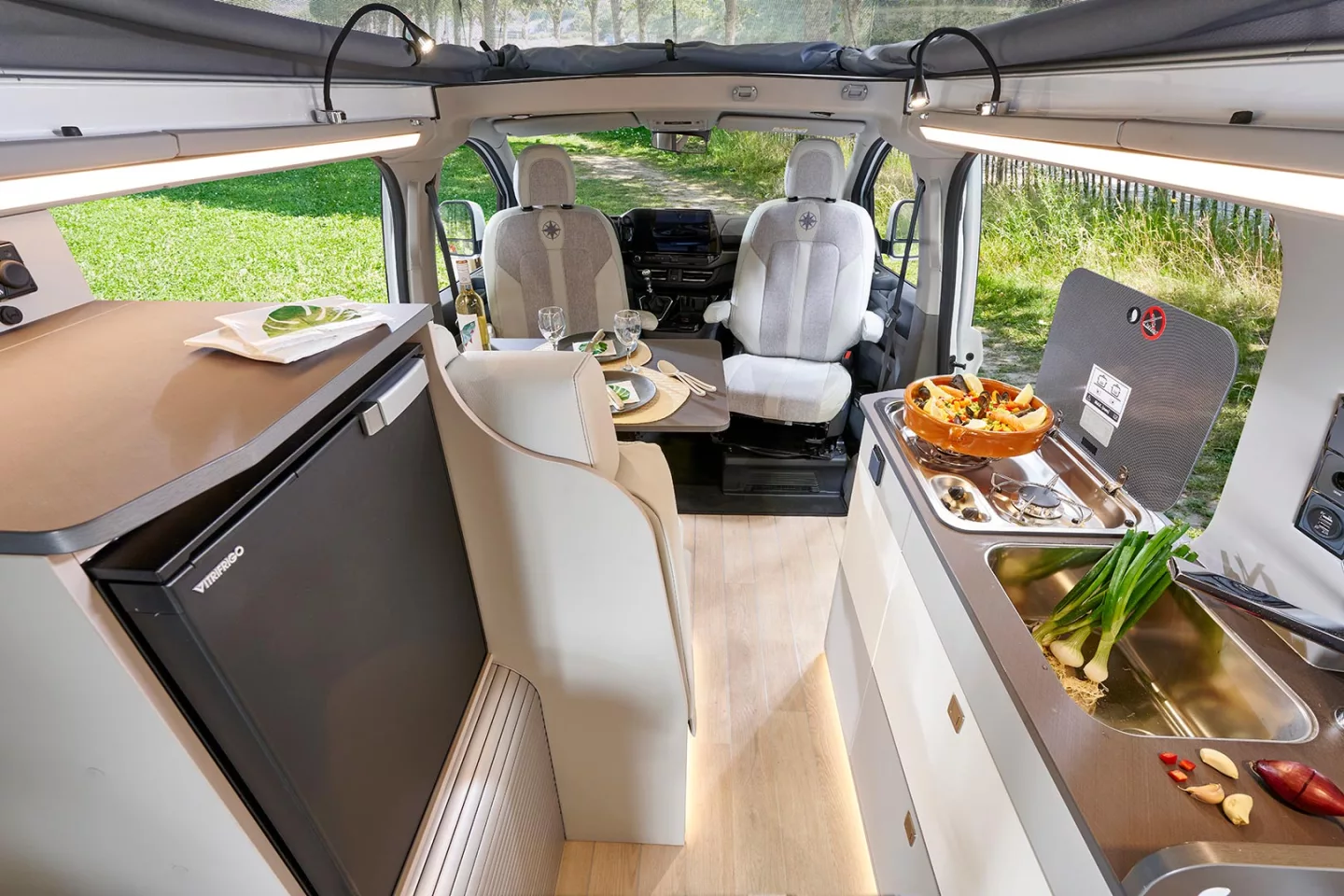
Westfalia will hold an official Kipling world premiere at this week's Düsseldorf Caravan Salon on Friday. Unlike with most of the Caravan Salon previews we've looked at this year, this one comes with pricing information ahead of time. The Kipling will start at €68,190 (approx. US$79,325) when built on a Transit Custom with 134-hp 2.0-liter EcoBlue engine and six-speed manual transmission. Options will include an eight-speed automatic transmission, more powerful 168-hp 2.0-liter engine, 92-Ah AGM leisure battery or 150-Ah lithium battery, outdoor dining set, 200-W solar panel and Fiamma awning.
The short promo below delivers a look at what Kipling buyers can expect from a morning at camp and afternoon on the water.
Source: Westfalia (Germany)
